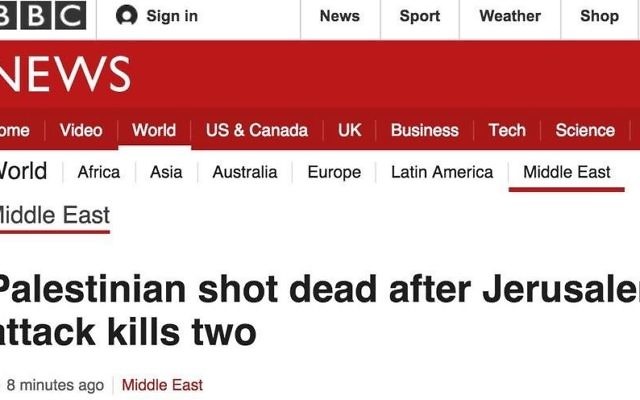The BBC and Jewish issues
THE BBC is seen by many as not being favourable to Jewish interests; however, according to UK scholar Dr James Jordan, this isn’t the whole picture.
THE BBC is seen by many as not being favourable to Jewish interests; however, according to UK scholar Dr James Jordan, this isn’t the whole picture.
Jordan holds the position of Karten lecturer within the English faculty at the University of Southampton, under the auspices of the Parkes Institute for Jewish/non-Jewish Relations.
He arrived in Sydney late last week to begin a six-week fellowship as scholar-in-residence at the University of Sydney’s Mandelbaum House.
In addition to presenting four public lectures during October, he plans to continue conducting his current research project into the impact and representation of Jews on BBC television.
“One of the things I’m interested in is the way in which television has a global perspective and the ways in which an Australian Jewish audience, for example, would view certain programs in a way that was different to a British Jewish audience,” he told The AJN.
“So being here allows me to do work on reception, and that’s really what I’m most interested in.
“In terms of the Holocaust for example, I’m looking at how certain programs on the Holocaust have been understood in an Australian context as opposed to a British context.”
In regards to the portrayal of Jews on the British broadcaster, he said: “There are programs which could be seen to be anti-Semitic, but it’s very much down to the individual program makers, and the BBC in itself doesn’t necessarily always have a line in that sense.”
But he said there was also remarkable variation.
“Sometimes you’ll find programs where it’s a horrific stereotype and you think how can this be made … and other times there are programs that are brilliantly inclusive and celebratory.
“There really is such a richness of the variety that reveals the relationship between Jews and non-Jews in the UK, which is quite fascinating,” he said.
He added that the way people respond to television is equally varied.
“That’s why I’m interested in television as a form – some people can engage with it and learn from it and learn about stuff which they wouldn’t otherwise encounter,” he said.
“Yet for other people it’s just simply something that’s on in the background, and it has no impact on their lives whatsoever.”
Jordan’s visit is timely after the BBC over the weekend headlined its coverage of a stabbing terror attack in Jerusalem with the skewed “Palestinian shot after Jerusalem attack kills two”.
For more information: www.learning.mandelbaum.usyd.edu.au.
GARETH NARUNSKY


comments